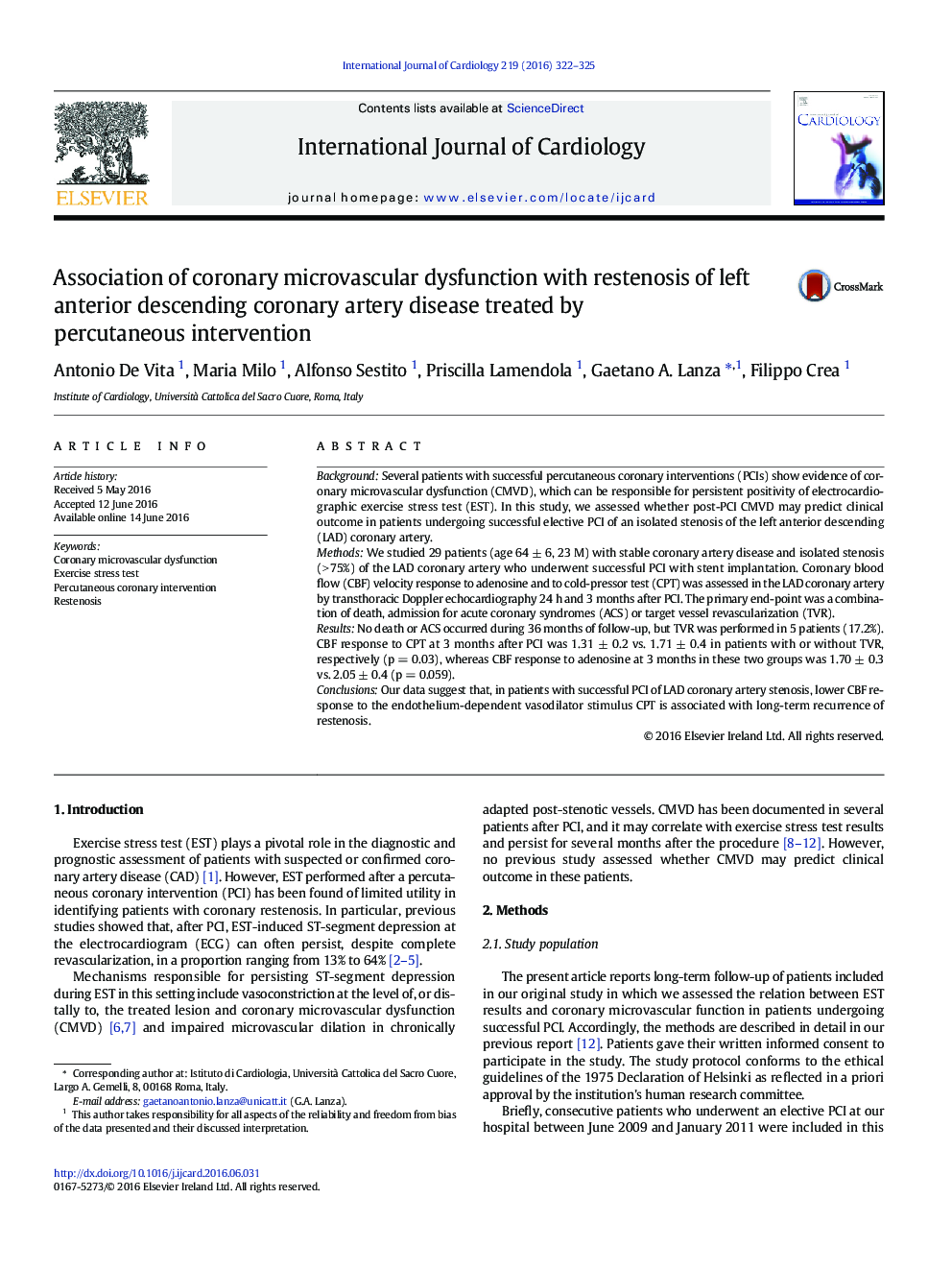| Article ID | Journal | Published Year | Pages | File Type |
|---|---|---|---|---|
| 5963694 | International Journal of Cardiology | 2016 | 4 Pages |
BackgroundSeveral patients with successful percutaneous coronary interventions (PCIs) show evidence of coronary microvascular dysfunction (CMVD), which can be responsible for persistent positivity of electrocardiographic exercise stress test (EST). In this study, we assessed whether post-PCI CMVD may predict clinical outcome in patients undergoing successful elective PCI of an isolated stenosis of the left anterior descending (LAD) coronary artery.MethodsWe studied 29 patients (age 64 ± 6, 23 M) with stable coronary artery disease and isolated stenosis (> 75%) of the LAD coronary artery who underwent successful PCI with stent implantation. Coronary blood flow (CBF) velocity response to adenosine and to cold-pressor test (CPT) was assessed in the LAD coronary artery by transthoracic Doppler echocardiography 24 h and 3 months after PCI. The primary end-point was a combination of death, admission for acute coronary syndromes (ACS) or target vessel revascularization (TVR).ResultsNo death or ACS occurred during 36 months of follow-up, but TVR was performed in 5 patients (17.2%). CBF response to CPT at 3 months after PCI was 1.31 ± 0.2 vs. 1.71 ± 0.4 in patients with or without TVR, respectively (p = 0.03), whereas CBF response to adenosine at 3 months in these two groups was 1.70 ± 0.3 vs. 2.05 ± 0.4 (p = 0.059).ConclusionsOur data suggest that, in patients with successful PCI of LAD coronary artery stenosis, lower CBF response to the endothelium-dependent vasodilator stimulus CPT is associated with long-term recurrence of restenosis.
